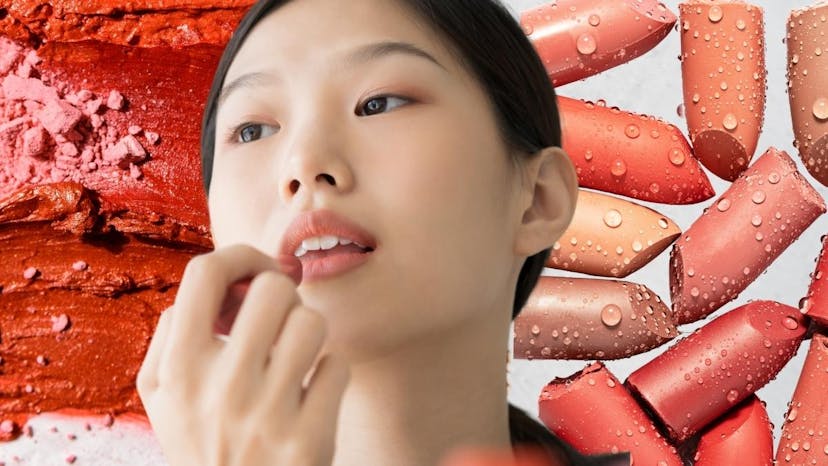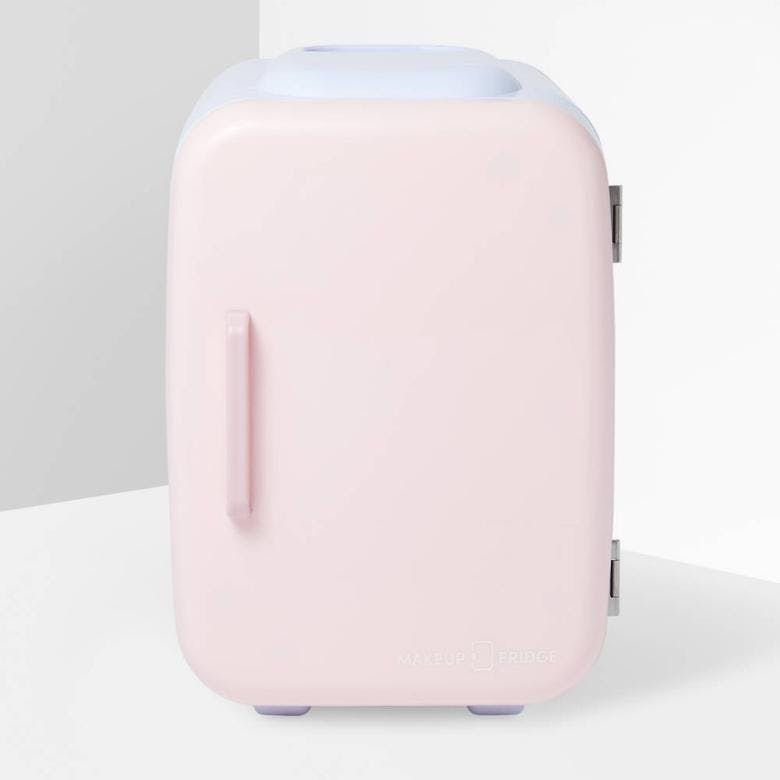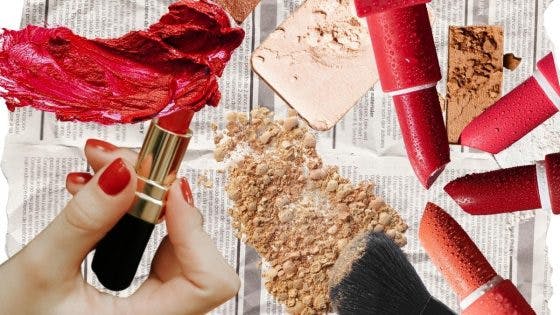How Long Does Make-up Last? Detox Your Make-up Bag
7 minutes read
We know that nothing lasts forever, and yet most of us fail to apply theory to practice when it comes to our make-up. So, how long do make-up products actually last for? And when is a good time to let them go?
The label on most products will contain a little drawing of a jar with a number on it. That’s the Period After Opening (PAO) symbol that reveals its shelf life. The number indicates how many months it’s good for, post-opening.
The amount of moisture the product is exposed to also determines how long it will last because moisture, as we know, is a breeding ground for bacteria. It’s also good to note that natural or organic make-up products are typically formulated with fewer preservatives, which means the chances of them going off are higher than their preservative-infused counterparts.
We’ve put together a complete guide on make-up product expiration: the shelf lives of various products, why you shouldn’t use old products and how to make your products last longer.

How long does make-up last? Expiration dates to know
Many factors determine when a product goes off, but as a general rule, here are some dates to remember for different products.
How long does foundation last?
How long a foundation lasts depends mainly on whether it’s a liquid, powder or cream-based product. Liquid foundations will be the first to go stale, with a typical life of anywhere between six to 12 months. You may even notice textural differences when they go out of date. Cream foundations can last up to a year and powder formulas (containing the least amount of water) can go up to two years.
The same rules apply to concealers, blush, bronzers and highlighters. Another factor to consider is their packaging. The ones packaged in jars or bottles that you can dip your fingers into will go off faster than products that have pumps.
How long does mascara last?
Most mascaras display a six-month PAO symbol. However, Clarins Training Manager Charlotte McHale points out that if you use mascara every single day, it’s not going to last six months. “That’s because every single time you put it on, you’re exposing it to oxygen (which over time will dry the product) and touching the wand to your eye, which transfers bacteria straight back into the bottle,” she explains.
So, if you wear mascara every day, you should probably replace it every three months. But if you’re an occasional make-up or mascara wearer, then six months is the longest you should be using it.
How long does lipstick last?
Most lipsticks, lip glosses and lip liners can last for two years. But if you notice any differences in texture, colour or smell, it may be best to throw them away sooner. However, lip liners can be sharpened frequently to extend their life and keep their texture smooth.
Often, you may notice little droplets of what looks like water on the surface of some lipsticks. This sweating happens due to temperature changes. Those are oils from the lipstick separating. If you notice more than a couple of droplets, it’s time to throw away your lipstick.
How long does eyeshadow last?
Pressed powder eyeshadow can last up to two years. But if they come in contact with any oils from used make-up brushes, they can begin to oxidise. Keep reading for tips on how to keep your eyeshadows fresh for longer.
How long does eyeliner last?
Here’s where you have to be cautious. Eyeliners are used around the sensitive eye area — sometimes even inside the eyes when used in the waterline. Liquid and gel formulas will naturally dry out within a few months.
Sharpenable pencil formulas can be kept smooth and functional for longer. But generally, it’s best to toss them after a year of use.
Storing your make-up during a heatwave
When the temperatures are soaring, should you switch up the way you store your make-up? Here’s what you should know.
What happens to make-up in the heat?
The melting point for make-up products depends on the specific product’s formulation. But balmy, waxy and oil-based products tend to be the first to melt, as their melting points typically range from 34°C to 37°C.
You may notice that creamy concealers and blush sticks feel more slippery and their consistencies are significantly affected during hot weather. Sometimes, liquid-based products separate. This could affect the product’s efficacy. Exposure to direct sunlight could also alter and fade the pigment in certain products.
If you’ve had a minor melting incident, you can expect your product to go back to normal once the temperature cools down. However, if the product has separated into two separate layers, it may be best to toss it out. Also, if you have sensitive skin, it’s probably safer to get rid of your melted make-up.
What’s the best way to store make-up during a heatwave?
It’s always a shame to have to throw away a barely used product, so prevention is key. Instead of trying to salvage melted make-up, turn your attention to how your products are stored. Don’t leave products on dressers, open shelves or in clear drawers – in short, anywhere that sunlight may reach. Direct sunlight is the enemy of well-functioning make-up.
In a heatwave, it may also be worth investing in a beauty fridge. Pop any high-risk make-up products in the fridge, and they will stay protected and cool until the heat subsides. Plus, they will feel extra-refreshing to apply (we also love storing cooling eye masks and moisturisers in there during the summer months). The STYLPRO Beauty Fridge, £54.99 and the BeautyBay Makeup Fridge, £45.50 are both great buys.

Read: Sweat-proof, Long-lasting Make-up for the Days Ahead
How to know if your make-up has expired
Firstly, check the packaging for the POA symbol. If you know that you’ve had the product for a lot longer than the recommended shelf life, toss it out.
Additionally, any changes you notice in the colour, appearance, texture or smell could indicate that the product has surpassed its shelf-life. Lipsticks, eyeliners, mascaras or other products that are designed to be long-wearing are likely to dry up sooner than others, as they contain ingredients that make them volatile.
Is it okay to use expired make-up?
Not only will the expired product perform poorly (chalky pigmentation, dry texture…), but it could also have other, more severe consequences for your skin.
The expired ingredients in the product and potential bacteria it houses could cause irritations, clogged pores, rashes, breakouts, redness and bumps. Out-of-date eye products could cause eye infections. Often, moisture build-up could lead to mould growth in the product — not exactly what you want to be putting on your skin.
But what if the product is unopened, you may ask? While it hasn’t been exposed to air, to be safe, it’s best to toss a product three years after its manufacture date, even if it’s still sealed and has never been used.
How to make the most of your make-up
- Store your products in a cool, dry place. Avoid keeping them in the bathroom that’s full of moisture and heat.
- Wash your brushes often. Bacteria from dirty brushes can transfer to your make-up. We love the StylPro Make-up Brush Cleaner – it’s a clever gadget that cleanses and dries brushes in seconds.
- When dealing with pressed powder products, McHale offers a handy solution to keep them fresh. “Give the top of the powder a little bit of a scrape with a disposable mascara wand. Or you could put a piece of tape on top and lift off the topmost layer, so you get to use the fresh product underneath.”
- Use clean hands when handling make-up products in jars or with reusable applicators.
- Avoid touching moist or wet brushes directly to the surface of a product. Dryness is key to ensuring a product stays bacteria-free.
- Keep the lids and caps of products tightly fastened after use.
How often should you detox your make-up bag?
Give your make-up bag a refresh every three to four months to get rid of anything that’s out of date. If you have an extensive make-up collection, this could be hard. But, it’s always better to have fewer products that you love and frequently use, rather than many that are old and dried up.
If you find that you’ve been holding on to products that you barely even reach for, it’s probably time to KonMari them out of your life, anyway. If you haven’t used them in months, let’s be real, you probably never will.
Sign up for our newsletter
We will keep you in the loop for special offers, exclusive gifts and product news.

